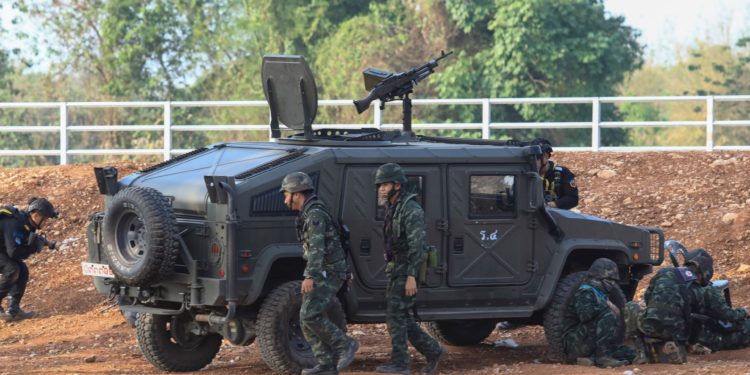Clashes break out at Thai-Myanmar border between soldiers, armed groups
Fighting has broken out between the Myanmar military and armed ethnic groups near a vital trade hub near the Thai border, according to Thailand’s government and media reports....
Read more































